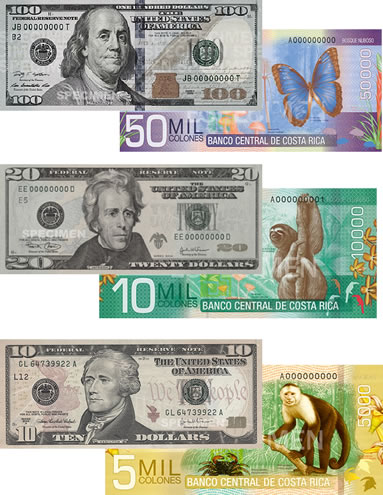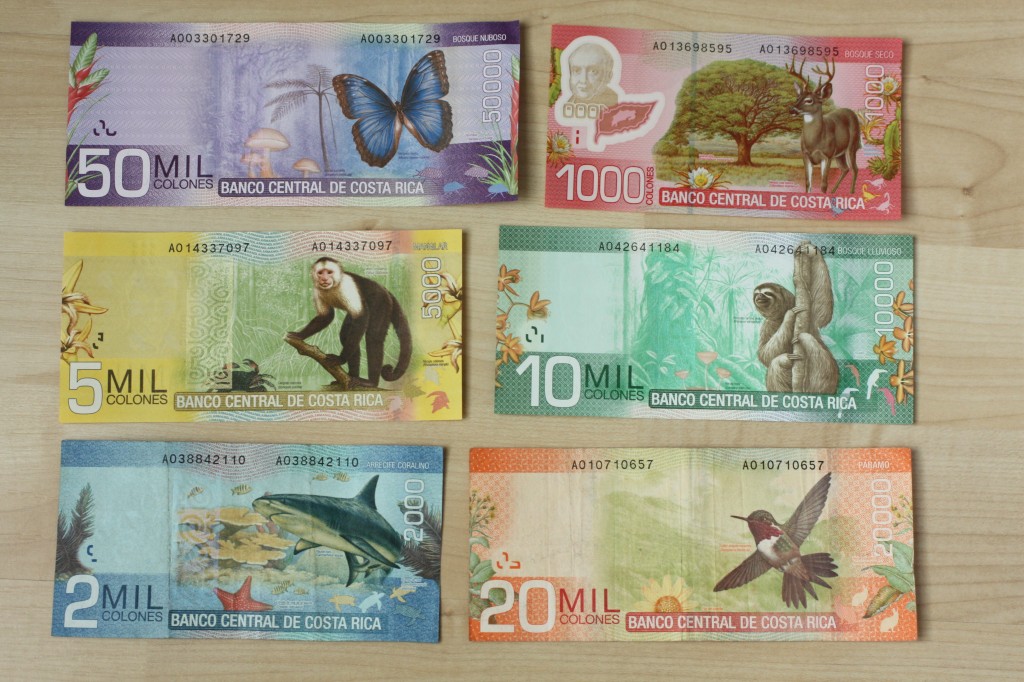Costa Rica News – Costa Rica’s currency needs to weaken further against the dollar to aid exporters as the country courts investors in the wake of firings by Intel Corp. and Bank of America Corp., President Luis Guillermo Solis said.
 The 9.5 percent decline in the colon this year is the most among 18 Latin American and Caribbean currencies after the Argentine peso. The central bank has sold dollars on 13 of the past 15 trading days, totaling about $122 million, its longest streak since 2008. Solis said he’s “happy” with the bank’s efforts to limit volatility since he took office May 8.
The 9.5 percent decline in the colon this year is the most among 18 Latin American and Caribbean currencies after the Argentine peso. The central bank has sold dollars on 13 of the past 15 trading days, totaling about $122 million, its longest streak since 2008. Solis said he’s “happy” with the bank’s efforts to limit volatility since he took office May 8.
“The trend toward devaluation needs to be kept,” Solis said today in an interview at Bloomberg’s headquarters in New York. “There’s no way we could keep the colon strong. Exporters and tourism investors were going crazy.”
The currency weakened 0.3 percent, the most in three weeks, to 554.04 per dollar at 12:57 p.m. local time. Solis said he doesn’t have a target for the colon and that the rate should be set by the market. A devaluation could aid the economy by making exports cheaper and luring more tourists to a country known for its tropical rain forests and beach resorts.
Solis, 56, is seeking to bolster the Central American nation’s economy after Intel (INTC) and Bank of America announced 3,000 firings in April, days after the former history professor won a runoff with 79 percent support. Citigroup Inc. cut its 2015 growth forecast for gross domestic product to 2.2 percent from 4 percent after the layoffs were announced.
Intel Lab
Intel accounted for about 21 percent of the country’s exports of goods, or 14 percent of total exports, according to Costa Rica’s investment promotion agency, known as CINDE. The Santa Clara, California-based company had said it was cutting its workforce in the country as part of an effort to consolidate operations. Intel later announced plans to invest $6 billion to upgrade a chip factory in southern Israel.
Intel said yesterday it would expand a testing laboratory in Costa Rica that will employ 350 people. Solis, who met with company officials this week in California, said his government will seek to improve infrastructure and education, lure more high-technology investors and expand the domestic market.
Those measures could help raise economic growth to 5 percent per year, he said. Growth this year could reach 3.5 percent, he added. Expansion will help tackle poverty in a country ranked 102nd in the World Bank’s annual “Doing Business” report this year, behind China, Vietnam and Namibia.
Poverty Fight
“I’m not willing to leave behind a significant part of the population of Costa Rica that has not had access to the benefits of the open economy,” Solis said. “I want to reduce poverty rates. The only way to do that is to make the economy larger.”
The central bank today raised the basic interest rate to 6.95 percent from 6.90 percent. Inflation in the country reached 4.2 percent in May from a year earlier, the fastest pace since September.
Chinese investment in Costa Rica is increasing, Solis said, and the government is backing efforts to improve roads linking the border region near Nicaragua to the port of Moin, near the city of Limon. The Hague-based APM Terminals BV is upgrading the port.
Solis reaffirmed his commitment not to raise taxes before 2016, saying he would seek to bring down income tax evasion of about 50 percent and fight the trade in contraband. The budget deficit estimated at 6 percent of GDP this year could be reduced by 1.5 percentage points by the end of his term, he said.
“If we are able to cut down expenses and make them better, in all likelihood we could probably lower the deficit at least a point and a half,” he said. “That would be a very good expectation.”
By Bill Faries and Jose Enrique Arrioja, From Bloomberg, bloomberg.com

